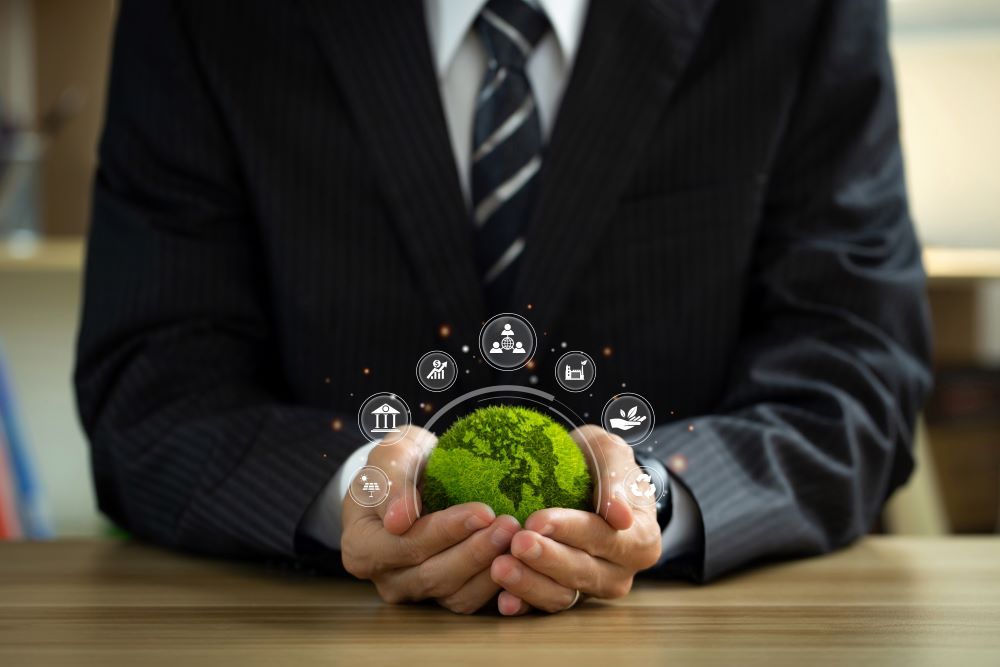


The UAE has been an early leader in innovation in terms of infrastructure, energy, and city development for years. Now, however, with climate hazards accelerating worldwide and the region moving towards more responsible utilization of resources, a next generation of revolution is taking hold—Sustainable Engineering is driving it.
Across the Emirates, private companies, government agencies, and developers are interweaving sustainability into the very fabric of development. Zero-energy buildings in Abu Dhabi to water-saving infrastructure in Dubai, Sustainable Engineering is now mainstream no longer. It’s the bedrock for resilience-building, carbon reduction, and assuring generations to come succeed in a world that’s under siege from climate.
The UAE is one of the top 10 most climate-change-affected countries, with increasing sea levels, heat extremes, and water shortage. Engineering systems like roads, houses, electricity, and desalination facilities are now required to be designed keeping in mind their environmental and social effects.
Pursuant to the UAE’s Nationally Determined Contribution (NDC) to the UNFCCC, the nation pledges to lower its greenhouse gas emissions by 31% in 2030. Achieving this ambitious target necessitates a systemic change in the way infrastructure and industrial systems are designed, constructed, and operated. That is where Sustainable Engineering comes into play—not as an alternative, but as a necessity.
Sustainable Engineering is the use of engineering principles to design systems that consume energy and resources efficiently while having a reduced negative impact on the environment and society. It transcends “greenwashing” by incorporating true metrics, lifecycle thinking, and innovation in all aspects of design and implementation.
For the UAE, this translates into designing buildings that consume less water and electricity, infrastructure that withstands extreme temperatures, and energy systems that favour solar, wind, and hydrogen over fossil fuels.
Masdar City is among the most ambitious Sustainable Engineering developments in the world. It is a carbon-neutral, zero-waste city that utilizes passive design, clean technology, and intelligent mobility to minimize its environmental impact.
While the initial intention of becoming the world’s first zero-carbon city has been diluted . The project has still registered considerable savings in water and energy consumption. Masdar claims that buildings in the city consume 40% less water and 30% less energy than conventional UAE buildings.
As part of Dubai’s Clean Energy Strategy 2050, the Solar Park aims to reach 5,000 MW by 2030. This mega project is not just about energy production—it’s a masterclass in Sustainable Engineering. It incorporates cutting-edge solar technology, thermal storage, and grid integration mechanisms to maximize efficiency and minimize land degradation.
Furthermore, DEWA’s solar innovation centre within the park offers R&D, training, and public awareness programs. These strengthen the effect of sustainable design practice in the entire nation.
Water conservation is essential in a desert country like the UAE. The Sustainable City in Dubai implemented smart irrigation in residential landscaping, achieving a 60% reduction in water usage for irrigation. The systems employ real-time information and weather predictions to provide optimal water consumption without sacrificing green appeal.
The Sharjah Sustainable City, for example, utilizes treated wastewater for irrigation in conjunction with a solar-powered water system. This improves circular water usage throughout its buildings.
The UAE government has demonstrated consistent leadership in integrating sustainability into engineering and infrastructure planning. From Estidama in Abu Dhabi to Dubai Green Building Regulations, regulatory mechanisms are shifting to mandate Sustainable Engineering best practices.
New buildings in Abu Dhabi must adhere to Estidama’s Pearl Rating System . This system analyzes water consumption, energy efficiency, material, and ecological worth. All these initiatives are creating actual, quantifiable results—not environmental only, but also economic. Dubai Municipality introduced the Al Safat system, which mandates that all new buildings meet at least the Silver rating. Buildings achieving higher ratings can see significant energy savings: up to 19% for Silver, 32% for Gold, and 35% for Platinum. As of mid-2023, over 72,000 buildings in Dubai adhere to these green building specifications.
Though momentum is increasing, a number of obstacles still prevent the complete implementation of Sustainable Engineering in the UAE:
But these are not impossible. With investment in education, transparent KPIs, and increased public-private sector collaboration, the UAE can continue to drive the region in sustainable transformation.
At Clenergize, we don’t merely preach sustainability—we engineer it. Whether you’re a developer, utility company, or industrial operator, our services are designed to integrate Sustainable Engineering into your very operations.
Here’s how we accomplish that:
When done right, Sustainable Engineering helps the planet, saves money, reduces risk, and strengthens brand reputation.
Ready to make sustainability a measurable part of your engineering strategy? Contact Clenergize today to schedule a free consultation and take the first step toward a smarter, greener future.
As the UAE hastens its Net Zero 2050 aspirations and ramps up climate action with COP28 legacies, Sustainable Engineering will become not only urgent—but obligatory.
Planners, consultants, and engineers need now to transition away from legacy modes towards future-driven paradigms that bring environmental, social, and economic sustainability into play. Doing so will enable them to create a UAE that is not merely resilient and thriving, but a world-class climate innovation leader.
Whether it is creating solar-powered cities, designing flood-proof infrastructure, or making existing developments efficient through retrofitting, Sustainable Engineering is the means by which the UAE’s sustainable future will be determined.